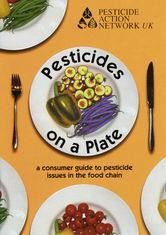
The Pesticides Action Network UK (PAN UK) has released a new publication to celebrate the European Week Without Pesticides, which runs from March 20-30, 2008. The publication, entitled ‘Pesticides on a plate; a consumers guide to pesticides in the food chain’, looks at the issue of pesticides in food along the supply chain, from grower to consumer.
According to PAN UK, the UK public are seriously concerned about the level of pesticides in their food, although up to 30 per cent of food consumed in the UK contains the residue of pesticides, some of which have been linked to serious illnesses.
The publication, which is available in both hard copy and as a download from PAN UK, starts with the basics, by explaining what pesticides are and how to find out what foods have been produced using pesticides, and then goes on to explain what the supermarkets are doing about the use of pesticides in farming, as well as what the consumer can do personally.
PAN UK’s Stephanie Williamson said: “While consumers should be concerned about pesticide in their food, the people really paying the price for our reliance on hazardous pesticides are those that produce our food. In developing countries the problem is particularly acute with workers and their families being regularly poisoned by pesticides, for example in Chile, it is estimated that 2,000-3,000 workers are poisoned by pesticides each year.”
PAN UK believes that the use of pesticides must be reduced to stop pesticide related poisonings, and in particular it believes there should be an emphasis on immediately phasing out the use of pesticides presenting the most serious threats to human health and the environment. The organisation is pushing the food retail sector, and in particular the supermarkets, to affect positive change.
PAN UK’s policy officer Nick Mole said: “Supermarkets should have a duty of care, not only to their customers, but also to their suppliers. Amongst other things, PAN UK would like to see far more action from supermarkets in providing technical and financial support for farmers to reduce their reliance on pesticides.”



